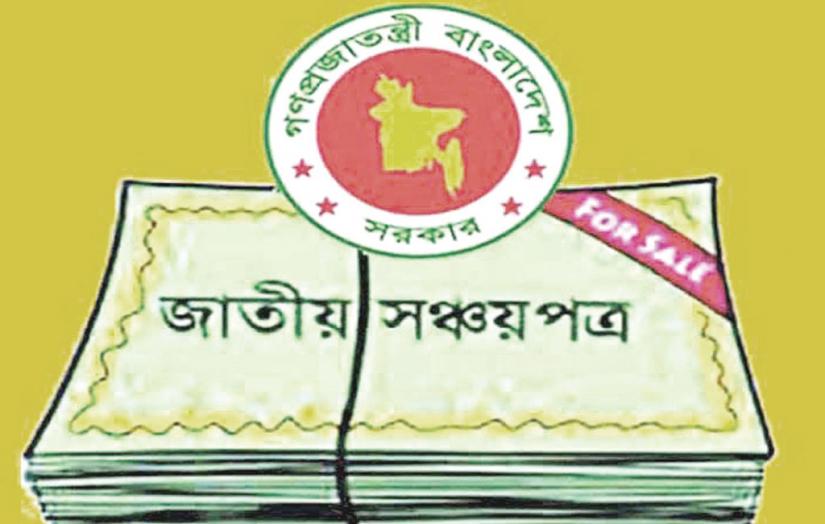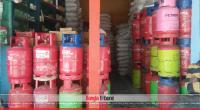 The net sales of national savings certificates (NSC) fell by 62.72% or Tk 25.23 billion in August, the second month of the current fiscal year (2019-20), compared to the same month in the last fiscal year, owing to an increase in tax on income from the investment in the instruments.
The net sales of national savings certificates (NSC) fell by 62.72% or Tk 25.23 billion in August, the second month of the current fiscal year (2019-20), compared to the same month in the last fiscal year, owing to an increase in tax on income from the investment in the instruments.
In August this year, the government sold NSCs worth Tk 52.14 billion. For this, Tk 37.15 billion was spent on the cost of the previous purchase saving certificate and interest payment, creating a net debt for the month of Tk 14.99 billion, according to the latest data of Department of National Savings.
In August last year, the net investment in savings certificate was Tk 40.22 billion.
Increase in tax on interest income from investment on savings tools might be the reason for the fall in NSC sales in August. NSC sales also dropped by 57% in July, the first month of the current fiscal year, said a Bangladesh Bank high official.
Talking to Dhaka Tribune, Pubali Bank Managing Director and CEO Md Abdul Halim Chowdhury said that the sales of NSCs dropped significantly in the July and August of the current fiscal year due to strict rules and regulation imposed by government for purchasing in saving tools.
In the Finance Bill-2019, the government increased the tax at source on savings instruments to 10%. After a few days later, the government slashed the tax at source on interest income from investment on NSC worth up to Tk 500,000 to 5% from 10% with an effect from August 28.
However, savings instruments over Tk 500,000 will incur 10% tax at source.
According to new rules imposed by the government, investors for purchasing saving tools should submit E-tin certificate and national identity card. If the amount of money is more than one lakh, they must pay the money through bank check.
In the budget for FY20, the revenue collection target was set at Tk 3.78 trillion, leaving deficit at Tk 1.45 trillion.
To meet the deficit, the government planned to borrow Tk 638.48 billion from overseas sources and the rest Tk 773.63 billion from domestic sources mainly from banks and saving certificates.
Of the amount to come from the domestic sources, Tk 270 billion will come from National Savings Schemes, and Tk 30 billion from non-bank sources.
In FY19, the government’s net sales of savings certificates reached Tk 499.39 billion against the net sales of Tk465.3 billion in FY18.
The government is giving interest at 11.04% to 11.76 % rates against the NSCs.
Currently, the Department of National Savings is offering four saving schemes — 5-year Bangladesh Sanchayapatra, 3-month Profit Bearing Sanchayapatra, Family Savings Certificate and Pensioner Sanchayapatra
 Business
Business
30736 hour(s) 14 minute(s) ago ;
Morning 11:09 ; Friday ; Apr 19, 2024
Savings certificates sales dwindle on higher tax
Send
Mehedi Hasan
Published : 06:00, Oct 11, 2019 | Updated : 06:00, Oct 11, 2019
Published : 06:00, Oct 11, 2019 | Updated : 06:00, Oct 11, 2019
0 ...0 ...
/zmi/
Topics: Top Stories
- KOICA donates medical supplies to BSMMU
- 5 more flights to take back British nationals to London
- Covid19: Rajarbagh, Mohammadpur worst affected
- Momen joins UN solidarity song over COVID-19 combat
- Covid-19: OIC to hold special meeting
- WFP begins food distribution in Cox’s Bazar
- WFP begins food distribution in Cox’s Bazar
- 290 return home to Australia
- Third charter flight for US citizens to return home
- Dhaka proposes to postpone D8 Summit
Unauthorized use of news, image, information, etc published by Bangla Tribune is punishable by copyright law. Appropriate legal steps will be taken by the management against any person or body that infringes those laws.
Bangla Tribune is one of the most revered online newspapers in Bangladesh, due to its reputation of neutral coverage and incisive analysis.
F R Tower, 8/C Panthapath, Shukrabad, Dhaka-1207 | Phone: 58151324; 58151326, Fax: 58151329 | Mob: 01730794527, 01730794528






